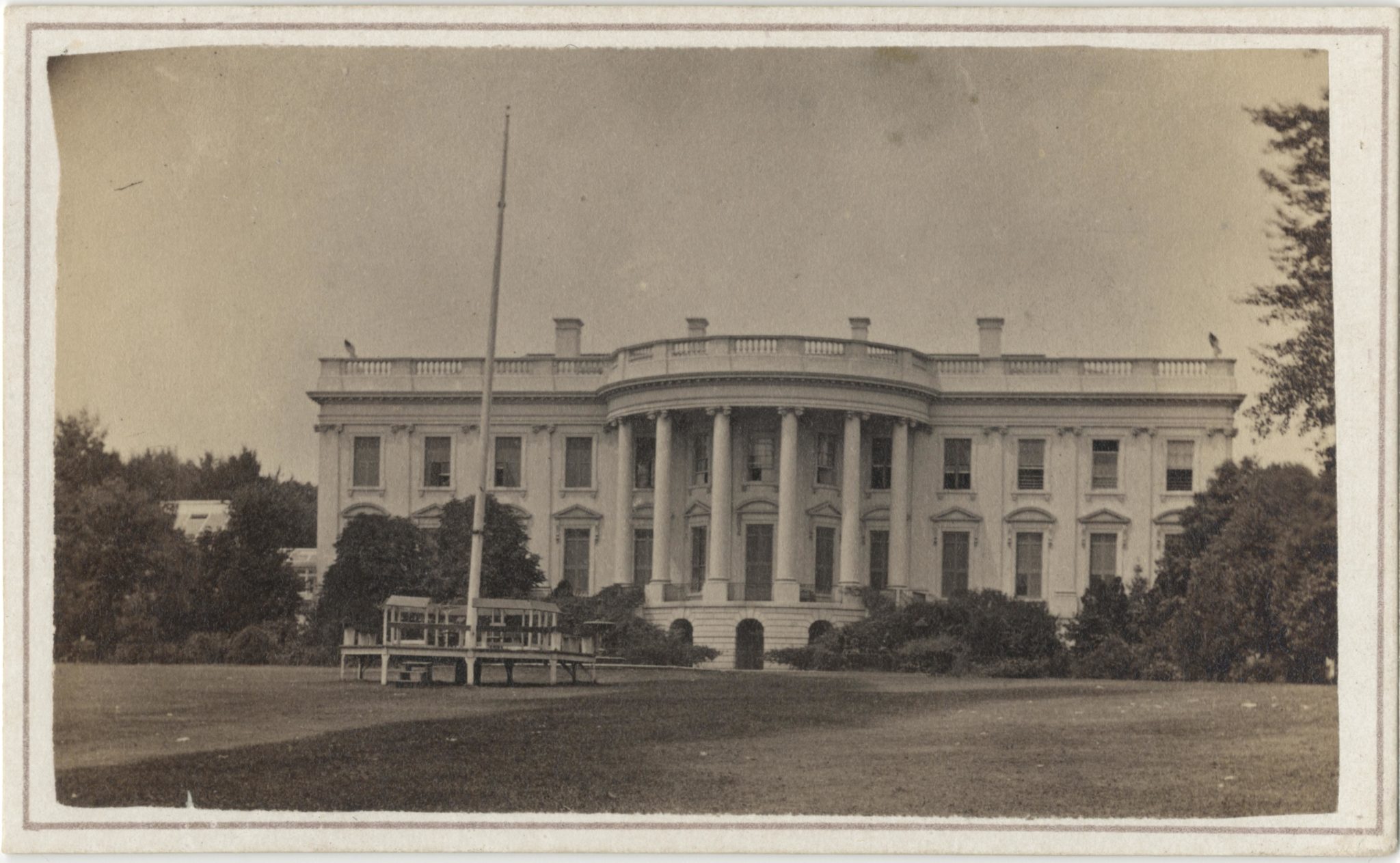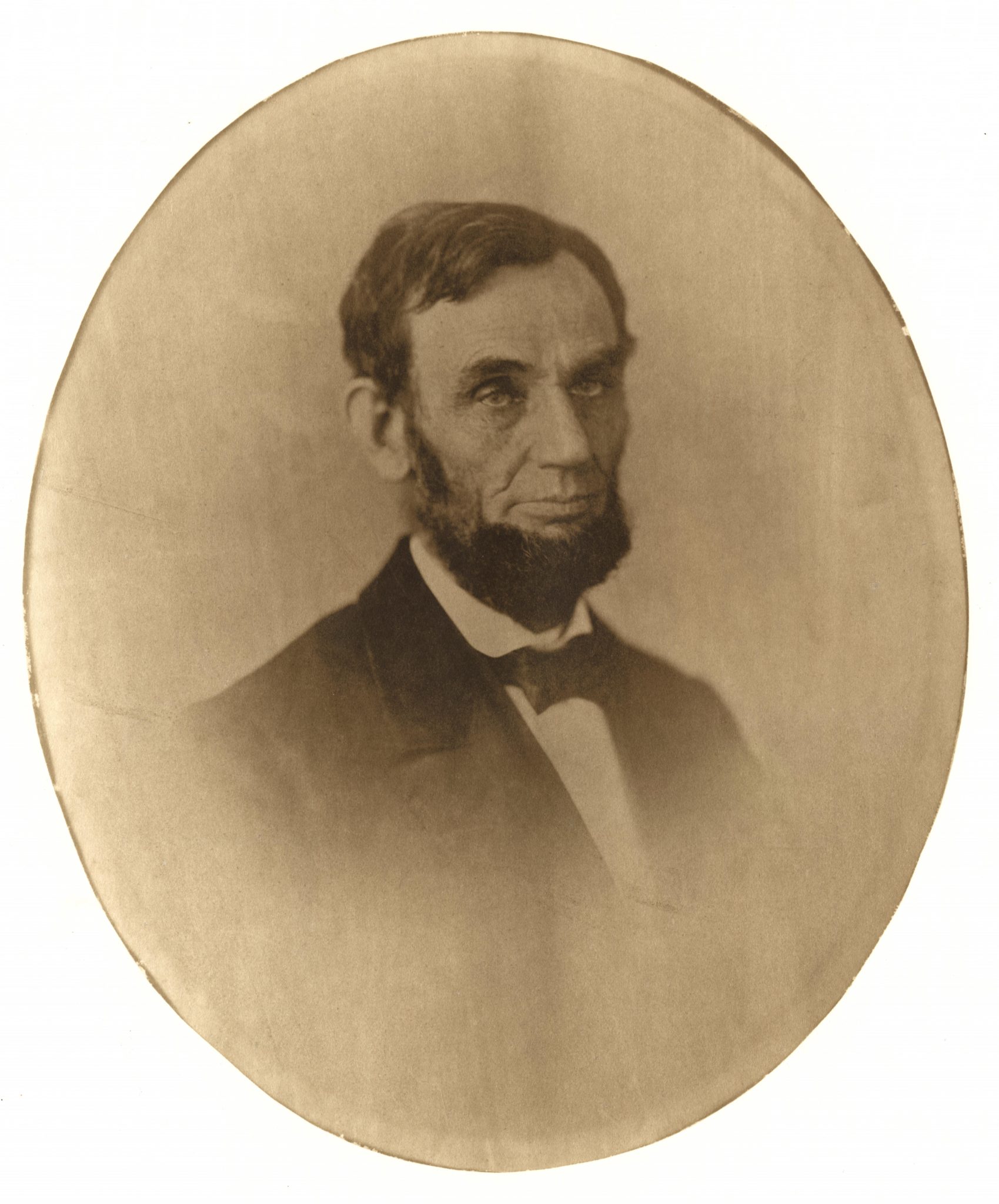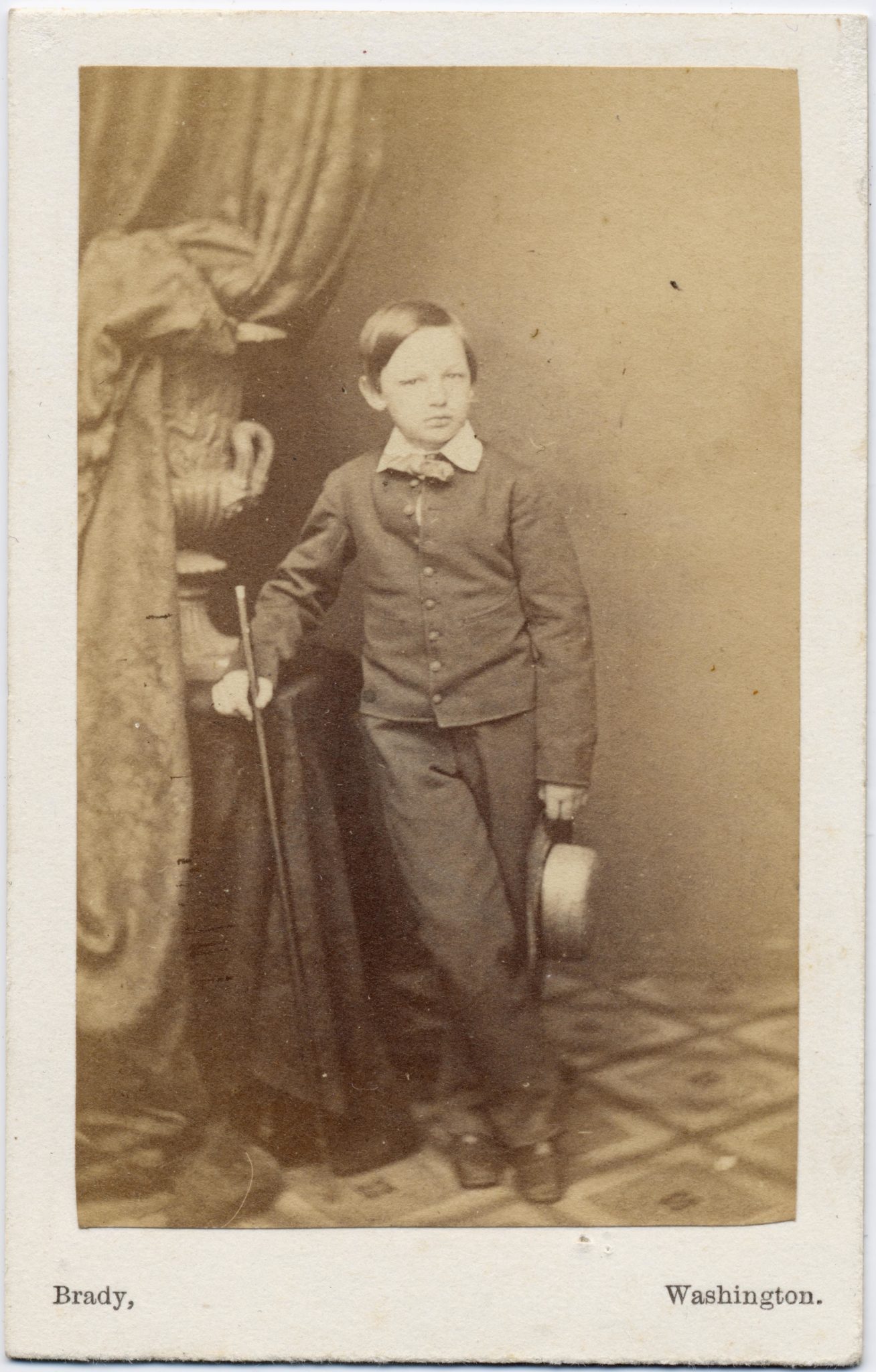An Interview with George Saunders, Author of Lincoln in the Bardo
George Saunders’ novel, Lincoln in the Bardo, is exhilarating and experimental. It was a New York Times and USA Today best seller, and it won the Man Booker Prize in 2017. It may make you cry in parts and laugh in some others. It will certainly make you think.
The novel is written in usually brief paragraphs from what are essentially ghosts in the cemetery where Willie Lincoln is laid to rest, but sometimes Saunders uses quotations from real histories and biographies. Because Abraham Lincoln makes some appearances in Saunders’ novel (and seems to loom over every page), Lincoln Lore is publishing this interview with the author. (C.K.)
Craig Klugman: What is the Bardo?
George Saunders: “Bardo” is a Tibetan term that means, roughly, “transitional state.” So we are in a bardo right now, namely the one between birth and death. The one referred to in the book’s title starts at the moment of our death and goes to…whatever’s next. There are wonderful books detailing what this experience is like (among them “The Tibetan Book of the Dead”), but I realized pretty early that verisimilitude wasn’t necessarily the job. It felt to me that, since this was a novel, the main job was something like “be dramatic.” So, to that end, “my” bardo ended up being a mash-up of the Tibetan tradition and the Catholic tradition and some ghost tradition as well. In other words, had I been truer to the “actual” bardo, I would have been less true to my job as a fiction writer, which is to make meaningful drama, and thereby force the story to tell big truths that are not necessarily historical or demonstrative of a certain religious system.
CK: What was the inspiration for the novel? Why Abraham Lincoln?
GS: It was a version of that thing young writers always dream about: that some “idea” will grab hold of you for inexplicable reasons and not let go until you write the book. In my case, the “idea” came out of an anecdote I heard a long time ago: Lincoln had been so heartbroken by the death of his son, Willie, that he supposedly went into the crypt soon after the burial to somehow interact with the body – look at it, or speak to it, or hold it. This idea appeared, I heard, in some of the newspapers of the time. I carried that idea around for twenty-plus years, not feeling confident that I had the skill to write it – it seemed too straight, too un-ironic, not funny, etc. Then, finally, in 2012, I thought of how sad it would be if I kept avoiding this idea. That would be a concession, really, to my own apparent artistic limitations. Which is a great way to die on the vine as a writer. So I decided to launch in and even made a sort of contract with myself, that I would allow myself three years and then, if it proved a total disaster, walk away happy.
As far as “Why Abraham Lincoln?” – the involvement of Lincoln was one of the reasons I avoided the idea for so long. It just seemed impossible and potentially corny and sentimental. The operative question of the book became, “Good Lord, how do you write about Lincoln without being imitative/mawkish/quaint?” Eventually, the dangers of writing about Lincoln became guard rails, sort of, or originality stimulants. My desire to steer clear of the corny and sentimental became a way to steer toward doing something new. It reminded me of that old joke:
Patient: It hurts when I do this.
Doctor: Don’t do that.
Whenever my representation of Lincoln started feeling like it was veering toward being too stock or sentimental, I would just say to myself, “Don’t do that.” Which was another way of saying that Lincoln – the real-life Lincoln – remains very much a mystery to us, and what is stock, sentimental, etc., are just rounded-off, habitual ways of representing this boundless person. So the goal became not “get Lincoln right” but “get him wrong in a new way, a way that feels original and unexpected enough to cause the reader to, even briefly, consider Lincoln anew.”

CK: Please describe the White House party depicted at the beginning of the book. Did you research the nature of presidential parties? And Mary Todd Lincoln does not come off very well.
GS: The Lincolns decided to cut expenses by having three large receptions instead of several large state dinners. This was Mary’s idea and it was a good and well-intentioned one, but that didn’t stop the Lincolns from catching a lot of heat for hosting a celebration during this dire period of the war. And, during that party, the Lincoln boys, who were sick with typhoid, grew worse – and this was the beginning of Willie’s decline, the guilt of which, of course, stayed with the Lincolns until the end. And they were also criticized, cruelly, for having a party while their son was upstairs dying – which wasn’t accurate. He was sick, but a doctor had assured them that the party would do no harm and that he would recover. I also think that Mary Lincoln gets a bad rap pretty much everywhere you look. I’m sure she was difficult, but Lincoln seemed to really love her, was very protective of her, and man, the difficulties that poor woman endured. And she often gave him very good advice, too.
My research just consisted of reading every description of that party I could find and then typing them up and cutting them up and endlessly rearranging them to find out which combination gave off the most energy. Again, the goal was not so much to describe that party but to sort of enact PARTY on the page – to make a sort of Platonic party. One of the mysterious truths I’ve discovered by writing fiction is that simply seeking energy in a piece of prose (velocity, tight logic, a feeling of being compelled through it) actually, in the end, produces truth. Or, you might say, that energy IS truth – reading about something and having it come simultaneously and spontaneously alive in one’s mind is a form of living in truth.
CK: Describe Willie Lincoln’s funeral.
GS: Well, there was a service in the East Room and a shorter service out at Oak Hill, in the chapel (which still stands). It was very emotional and there was a particularly beautiful speech by the Reverend Phineas D. Gurley. The sense you get is that everyone present realized that a very special child had been lost, and joined the President and Mrs. Lincoln in their grief.
But I should say that my research method was a little backwards – I would realize what I needed and go in search of it. So what I know about the funeral is exactly equal to the text fragments I accumulated about it, if that makes sense, and I would have to wait and see where they might be needed. For example, I found Gurley’s speech and typed it out and was just, then, waiting for it to be necessary and effective somewhere. And, in the event, I actually split it up – some went in Chapter XVIII, a section of testimonials about Willie, and some went toward the end of the book, in the section describing the funeral.
So I guess what I’m saying is I don’t know a lot about the funeral, other than what I represent in the book. It wasn’t necessary for me to “master” the funeral and then decide what to write about it. Rather, I was trying to be sensitive to what the structure of the book needed and then supply whatever it needed, and if it seemed to be something from the funeral, I would do whatever reading was needed.
CK: Who was Isabelle Perkins?
GS: She is a young woman I invented. When I was visiting Oak Hill, I got interested in a row of houses across the street, from which a person would have had a view of both the guardhouse and the chapel. I felt like it might be useful to have one more living human available, to comment and help locate the reader from time to time. (Lincoln is actually the only “real” living person who shows up in the fictive graveyard. I also invented a night watchman, Jack Manders. So Lincoln, Perkins, and Manders are the only “living” people in Oak Hill that night.) As I was writing Perkins, she started, as often happens, to tell me a particular life story. She was disabled and bed-ridden and had no family but a brother, who was off on some sort of (selfish, we feel) adventure and had left her in the care of a nurse. So she had a lot of time on her hands and kept a detailed diary (from which I am “quoting”) and spends a lot of time looking across the street at the cemetery. And, on the night in question, she sees Lincoln twice – as he enters and then again as he leaves.
CK: Are others named in the Bardo real people or did you create their stories? Or are they a mixture? Did you prepare detailed back stories for them?
GS: The non-living beings are all invented (except for Willie Lincoln). I don’t really prepare backstories off the page, except for birth and death dates. They sort of revealed their life stories as I wrote them and then, of course, the challenge was to “remember” what they had told you, as you came back to them again and again. (And to continue to expand their stories in the new sections.) My theory is that the writer’s first job is to make interesting and believable text chunks. So, whatever was interesting in the moment as I made the prose – well, that became the character’s life story. This prevents a very real problem that every fiction writer has to deal with, namely the problem of over-controlling the material. Asking “What ghost do I need right now?” has the effect of injecting the writer’s (too simple) intentionality into the work and thereby making it didactic and tidy. Whereas, I found, if I just trusted my intuition to help me “make” a ghost at the needed moment, out of whatever language was available and interesting, then the text felt more alive and organic. You sense that there should be a ghost off to the right, you start typing (i.e., internally narrating that ghost’s voice) and…voila. There he/she is. And then you have to deal with him or her, i.e., you have to not forget what he or she just told you, and to continue to listen in the pages to come.
CK: Did your thoughts about Lincoln change while you researched the novel?
GS: Yes, but that was partly, of course, because I was injecting so much of myself into him. So he became more like me, and consequently, I found I liked and agreed with him more. (Ha ha, and yet not.) I did come to think that the historical Lincoln was someone who had a good dose of depression, on top of which he got a good dose of bad fortune and that this combination took him very low indeed at certain points – but that he may have had some extraordinary glimpses at wisdom while in that state. I think we’ve all had moments of feeling completely bottomed out, when all of our plans and good intentions have come to nothing, and, speaking for myself, those moments are full of honesty and clarity – you have no bad ideas or dear agendas to protect anymore. You’re allowed to just see. One senses that Lincoln spent a lot of quiet, solitary time in that state, looking at the war and equality and mortality, and that, in the long run, the nation benefitted from this sadness-wisdom. Although I suspect it wasn’t always very enjoyable for him.

CK: How did you choose the actual books on Lincoln that you quote from? Which did you admire, and which, not so much?
GS: I admired, or at least was grateful for, every single one of them, because I could use everything. Even if a book was poorly written or had what seemed to me a weak idea of the center of it, I could potentially use it, since the idea was to simulate “America singing.” Bad theories, weak voices (good theories, strong voices) were all a part of it. In some ways it was like walking through a train station, recording on your phone: whatever was heard, was part of the portrait of “Train Station.” You took the good with the bad.
I chose the books by a process of voracious serendipity: any time I saw or heard about a Lincoln book or a Civil War book, I’d go to the index and see if Willie was mentioned or that party, and I’d write down whatever I found. I imagined my brain as a silo and the job was just: put as much as possible in there so that, at the moment of invention, I would have a solid basis. There were, of course, notes that I didn’t use. Structure was king; if I had a fact or a nice quote that didn’t somehow serve a larger purpose (move the story along, help inhabit a chapter that would move the story along) then it went into the Discard pile (where, sadly, it remains, to this day).

CK: Lincoln in the Bardo was your first novel. How did that happen?
GS: I’d never found material that made me really, really want to extend it, or, to be more accurate, that I could extend naturally. Before, I would have to “try” to write a novel – slow things down, or write a bunch of stuff I really wasn’t interested in. (Ugh, the scene of X and Y’s wedding, snore.) This time I was actively trying to make it NOT a novel but the material kept insisting. It kept insisting in this way: I’d write a section, trim it down with the same kind of radical scissors I use on a story…and that section would suggest the next one. I wrote and wrote and got to about 60 pages and had only just begun (was, maybe, an hour into that eight-hour night).
I was, really, perfectly happy just writing short stories all those years – it’s such a difficult and beautiful form – and I’m back to writing them again now, blissfully. And I’m not sure this is even a novel, really – my wife is fond of pointing out how much white space there is in it. But I do feel that I found the right form to tell this story, and I’m happy that that form is sort of insane and, at the very least, can lay some claim to being original.
CK: Besides writing best-selling novels, what else do you do? Are you still teaching at Syracuse University?
GS: I am, and very happily so. We get about 600-700 applications a year for our fiction program and choose six to come. So our students are amazing. The nice thing is to be constantly reminded that talent is constant in the world. It might change flavor from generation to generation, but not in its presence or intensity.
Other than that, I occasionally make a trip to write a non-fiction piece. During the 2016 campaign I went to some Trump rallies and wrote a piece for The New Yorker about it. I love doing those kinds of things because they open up your mind and tend to deconstruct one’s (my!) lazy, middle-aged projections about the world. Which, in turn, opens up the fiction, when I get back to it.
CK: What question do you wish we had asked about Lincoln?
GS: I wish you’d asked me for Lincoln’s thoughts on audacity, so I would have an excuse to tell you the following story that he used to tell:
In a town, there was this man who was known for being audacious – brave, bold, courageous, up for any challenge. One day he’s at a big party. Everybody’s dressed up, a very formal occasion, all the best people in town are there. And the host, knowing that this man was so Audacious, asked him to carve the turkey. The Audacious Man stands up, cuts the turkey – and lets out a tremendous fart. The room goes silent. What will the Audacious Man do? How can he possibly recover? The Audacious Man takes off his jacket, rolls up his sleeves, picks up the knife, says: “Now let’s see if I can cut this turkey without farting again.”
[Craig Klugman retired as editor of The Journal Gazette in Fort Wayne, IN. He is a Director of Friends of the Lincoln Collection of Indiana.]
